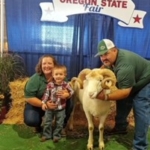Have you ever wondered what to do with your livestock and animal manure? There is a way to put it to good use! A pile of manure sitting uncovered and unattended is a danger to leaching harmful bacteria and particles into the waterways. By turning the manure left from your chickens, cows, horses, and any other livestock and animals you have into compost, you can fertilize your soil at low cost, and save the water from harmful runoff.
Benefits of Composting
Sequesters carbon, adds organic matter, reduces erosion, conserves water by increasing water holding capacity and reducing runoff, improves plant growth and health, adds beneficial micro-organisms, and more!
Preparing Manure for Compost
Although manure is rich with nitrogen, phosphorus, and potassium, the amounts of these vary based on what the animal is eating and what type of bedding they use. Hot composting is a method used to prep the manure to get rid of parasites and bacteria going into the compost by heating up the compost pile to a temperature between 114 and 155 degrees F. You can do this by adding organic matter, turning the pile, and adding twice as much carbon than nitrogen. This method also allows you to add weeds that have gone to seed, as the temperatures get high enough to kill the seeds. To learn more about hot composting visit Hot Composting – Turn Food Waste Into Compost In Record Time (ruralsprout.com)
To learn more about how to get started composting manure, visit Turn manure into compost for your garden | OSU Extension Service (oregonstate.edu)
Compost Storage
On larger scale farms, keeping a manure compost pile needs to be overseen to ensure waterways are not being impacted by runoff from the pile. It is often recommended to keep the pile on top of a concrete slab, in a covered area or with a tarp cover at the very least.
In cases where you may be composting more than 20 tons of manure, you may need a permit issued by DEQ or an Agricultural Composting Management Plan working with ODA.
On-Farm Composting, DEQ Rules | College of Agricultural Sciences (oregonstate.edu)
Additional information about how you can start composting on your farm: On-Farm Compost – Will It Work On My Farm? | College of Agricultural Sciences (oregonstate.edu)
Contact Us
Our Ag planner can help you with your composting questions.

